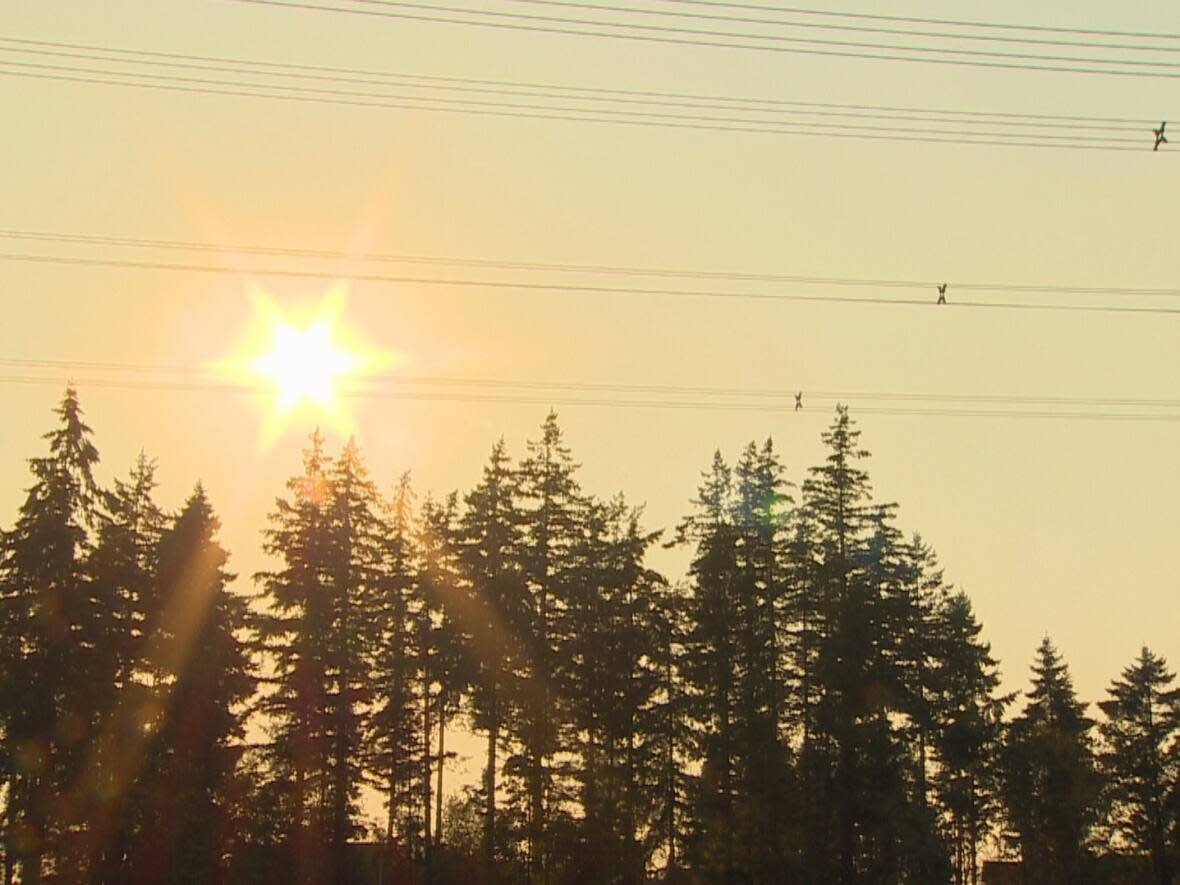Air quality advisory for Metro Vancouver, Fraser Valley continues due to wildfire smoke

Metro Vancouver says wildfires burning in parts of B.C. and Washington state are affecting air quality in the region and will persist for days until weather patterns change.
On Sunday the regional government said it was continuing with an air quality advisory for Metro Vancouver and the Fraser Valley it issued Oct. 14 because of high concentrations of fine particulate matter due to wildfires.
"Stagnant weather conditions are forecast to persist for several days and it is expected that air quality may not change until there is a more significant change in the weather," read the advisory.
There are wildfires currently burning southeast of Chilliwack (near Chilliwack Lake), near Hope and Harrison Lake, and a few in Washington state. All of them are contributing to the smoke in Metro Vancouver and the Fraser Valley, according to the regional district.
The B.C. Wildfire Service said on its website that there are currently 207 active fires burning in the province, with 10 new ones in the past two days.
Much of the province is enduring unseasonably warm weather and has recorded very little to no precipitation, which has allowed drought conditions to persist.
Metro Vancouver says smoke concentrations may differ across the region but that eastern parts of the Fraser Valley that are closer to many of the wildfires are seeing higher concentrations of smoke compared to western parts of Metro Vancouver.
Fine particulate matter, also known as PM2.5, refers to airborne solid or liquid droplets with a diameter of 2.5 micrometres or less. PM2.5 can easily penetrate indoors because of its small size.
Metro Vancouver is asking residents to postpone or reduce outdoor physical activity while PM2.5 concentrations are high, especially if breathing feels uncomfortable.
Exposure to PM2.5 is particularly a concern for people with underlying health conditions such as lung disease or heart disease, as well as those who are experiencing homelessness.
The regional district, in its advisory, suggested seeking relief by running HEPA air filters in homes or by visiting public spaces with air conditioning, such as community centres or libraries.
The province provides an up-to-date air quality data map here.


